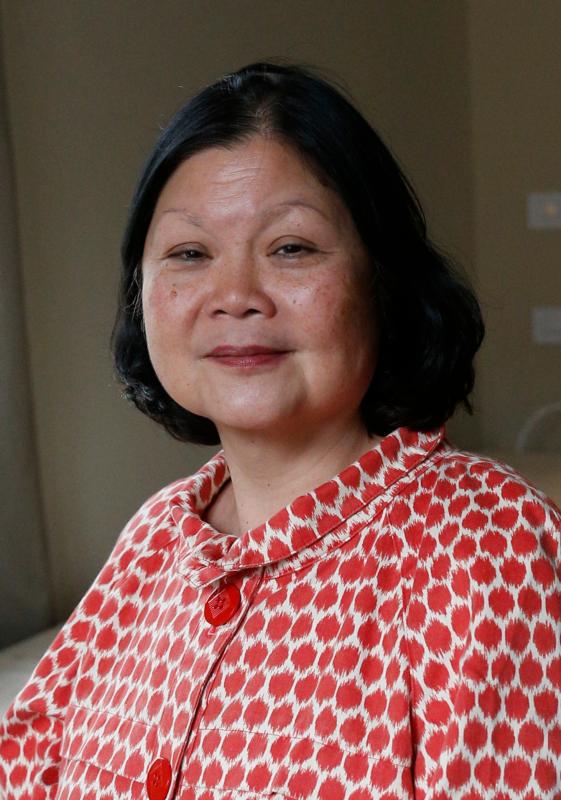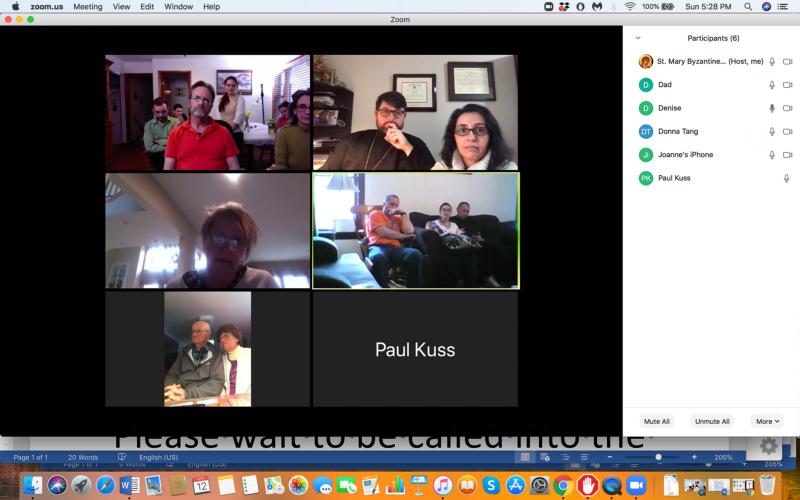
by Cindy Wooden
ROME (CNS) — As people look forward to the lifting of stay-at-home orders in place to curb the spread of the coronavirus, thinking about what they have missed and what they have learned has led many to make resolutions for the future.
Catholic News Service asked a variety of people in late April: “Is there something you’ve really missed that you will be sure to do once this is over? Is there something you’ve done in lockdown that you want to be sure to keep doing later?”
Carolyn Y. Woo, the retired CEO and president of Catholic Relief Services, the U.S. bishops’ development and relief agency, responded that what she missed most is “sharing meals, laughter and fellowship with friends and family — miss this a lot” — and “receiving Communion.”
But she also said she has “attended” online Mass daily, is praying the rosary — including sometimes with her sons by Zoom — and is joining people from her faith community for a weekly prayer service where “there are opportunities for reflections on Scriptures by women, and these are excellent.”

Woo also said she is walking more around her neighborhood, which is giving her a new “sense of our local community.” And, she said, “we do not consume as much and really try not to waste food; we pay attention to the availability of things we take for granted: oranges, eggs, good bread.”
Michael Bayer, director of evangelization and adult formation at St. Clement parish in Chicago, said, “The involuntary isolation created by the coronavirus pandemic has jolted me into an unanticipated solidarity with so many elderly, homebound and otherwise distanced members of our community.”
When the pandemic is over, he said, “I hope we can continue our parish’s virtual ministry of care, checking in on those who might not be able to join us in person for Masses and events. And on a personal level, I intend to do a better job making time to schedule regular virtual hangouts with friends and family whom I cannot visit in person.”
Gregory K. Hillis, a professor of theology at Bellarmine University in Louisville, Kentucky, said he tends to be “an anxious person who wants to be able to control and predict the future,” but “I’ve allowed myself during the lockdown to take seriously the advice of a monk who told me that I needed to focus only on what I can control instead of what I cannot control, like this pandemic and what will follow.”

“COVID-19 helped me to realize how little I have control over, and I’ve been fascinated by how my anxiety decreases to the extent that I live into this realization of my powerlessness,” he said. “When the lockdown is over, my hope is that I will not forget this realization and will refrain from fretting over trying to control that which is ultimately uncontrollable.”
Laura Ieraci and her husband, Father Andrew Summerson, administrator of St. Mary Byzantine Catholic Church in Whiting, Indiana, said, “We agree our biggest resolution is to look at adversity and challenges from now on as opportunity. What are the opportunities that are opening up before us in this challenge? Where can we pierce a little hole in the darkness to let in some light? How can we continue on our mission in the face of adversity?”

Finding new ways to minister and build community during the pandemic, she said they have discovered that “much like a river seeks to go around an obstacle in its path, we need to be a little more nimble and forge new paths as well.”
In their personal, spiritual and professional lives, Ieraci said, they have been trying to ask themselves, “What and where are the opportunities for growth in this situation? Our intention is to keep this perspective top of mind, even when things go back to ‘normal.'”
Here are selections from others who were asked to contribute:
— Jesuit Father James Martin, editor at large, America magazine, said: “I have missed hearing the beautiful choir at the Church of St. Ignatius Loyola in New York City, where I usually celebrate Sunday Mass. It’s one thing to hear a hymn online; it’s quite another to hear it ‘viva voce,’ with the big organ booming behind them. One thing I’ll continue to do is cook more often for my Jesuit community, which I’ve been doing every week since the pandemic started.”
— Daniella Zsupan-Jerome, a theologian and author who has focused on media and ministry, said, “I cannot wait to pick out my own groceries again,” but she said that even when restrictions ease, she plans to continue to “bake, garden and take walks.” And, she said, “I really hope churches continue to livestream services and devotions.”
— Sister Susan Francois, assistant congregation leader of the Sisters of St. Joseph of Peace, said the pandemic has caused her to cancel travel plans to visit members of her order and her own father. “This is a time of such fragility and vulnerability, and while we are in some ways more connected in spirit, it is this physical closeness of family and community that I miss most, I think. Zoom and even phone calls and email are great, but they are not the same as looking someone in the eye or holding their hand.”
Like many people, she said she has been surprised by how busy she has been, but “I’ve also been able to take more time for quiet and reflection. I’ve been knitting more and am almost getting passably good at it! I’ve also taken some personal retreat days — just me and God, taking walks, reading, listening to the Spirit. This is something I want to make more room for in my life going forward.”
— Susan Timoney, professor of pastoral studies at The Catholic University of America, said, “One thing I will continue to do is reach out to friends that I don’t see often and/or who live alone and just say ‘Hi.’ My job has continued uninterrupted and so the excuse of ‘I don’t have time’ or I am too busy is not the case when I choose to be intentional! One thing I can’t wait to do is hear a full church singing!”
— Patricia McGuire, president of Trinity Washington University in Washington, D.C., said, “I really, profoundly miss seeing our Trinity students every day, and colleagues as well. I realize how much we take for granted in our daily interactions, and Zoom is no replacement for being truly present to each other.”
McGuire admitted that “sometimes in the past, I’ve skipped events when I felt too tired to attend, but now, I will never again decline an opportunity to be with students and colleagues!”
“During the lockdown,” she said, “I’ve shared more of my personal side in daily communications with Trinity’s campus community, like my bird photography — I even challenged the community to a bird-watching contest! Going forward, I’ll definitely try to keep more of that personal touch in my messages to the community; it seems to resonate well with many people.”
Copyright ©2020 Catholic News Service / U.S. Conference of Catholic Bishops.






